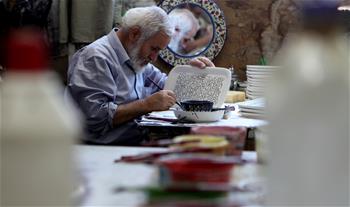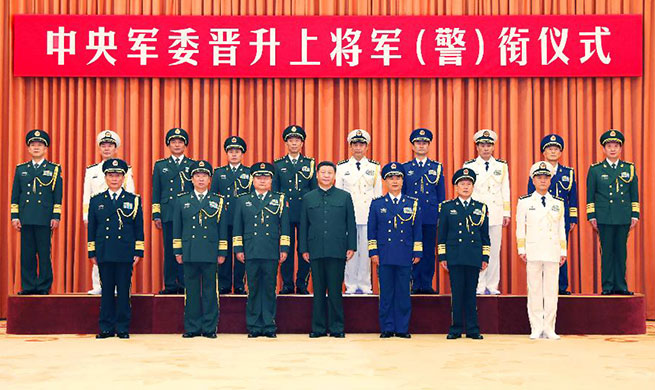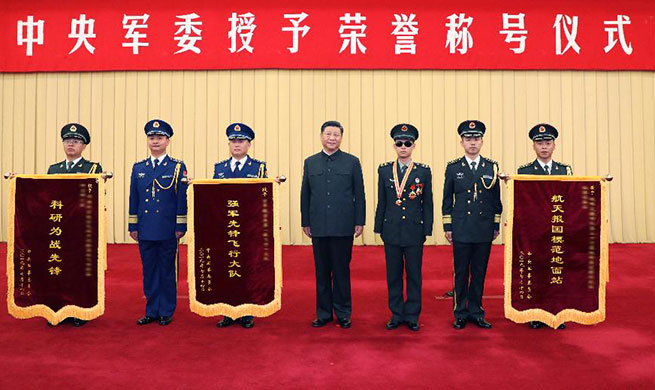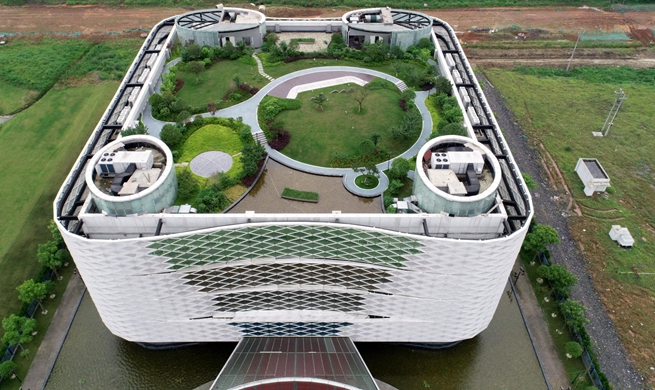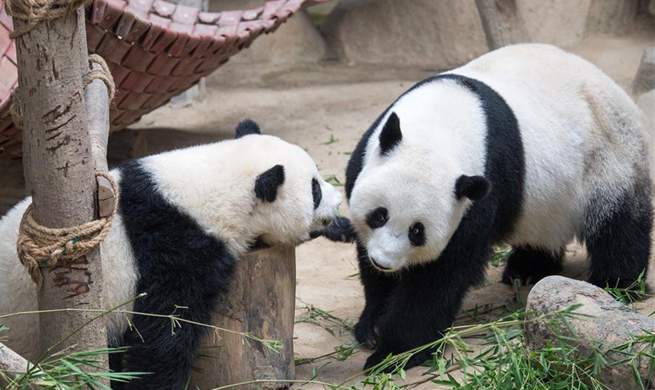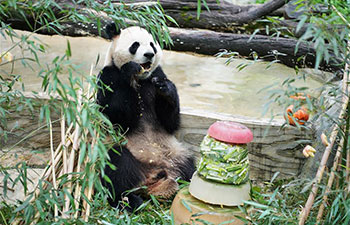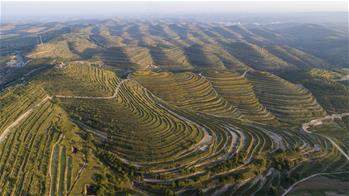GUANGZHOU, Aug. 1 (Xinhua) -- Most people would find it irritating, to say the least, to work next to the buzzing sound of thousands of flies. But to Xu Song, the noise is the soundtrack of a more sustainable future.
Xu is the general manager of the Guangzhou Outreach Environmental Technologies Co., Ltd., which specializes in using black soldier flies (or Hermetia illucens) to treat kitchen waste.
In Xu's factory in Baiyun District of Guangzhou, capital of southern China's Guangdong Province, rows of breeding sinks with little white worms inside stand in an area of about 12,000 square meters.
The worms are the larvae of black soldier flies, which can eat up to 50 tonnes of kitchen waste from nearby restaurants and canteens in a day, according to Xu.
Researchers say the fly larvae have shown prowess in dealing with organic waste including food leftovers. The larvae, rich in protein, can also be made into animal fodder and their feces can be processed into organic fertilizer.
"The larvae hatching from 10 kg of fly eggs can consume around 100 tonnes of food waste within six to eight days," Xu said, adding that the insects would be harvested thereafter and made into about 15 tonnes of high-protein animal feed, which sells at about 10,000 yuan (1,449.5 U.S. dollars) per tonne.
Meanwhile, the feces produced by the larvae during the process is turned into fertilizer, which is later sold and used in a banana field some 100 km away from the factory.
Zhao Jilin, a researcher with the urban management bureau of Baiyun District, said the black soldier fly project was launched in the district in 2016 to help solve the haunting headache of garbage disposal.
"Before that, the kitchen waste in the district was either buried, incinerated or fed to livestock, which raised concerns over pollution and food safety," Zhao said.
Now the waste is transported to Xu's factory and converted into harmless protein with the help of the insect army.
Guangzhou is not alone in using black soldier flies to tackle the pile-up of kitchen waste in a rapidly growing city. Other cities in Guangdong, including Meizhou and Shantou, have followed suit.
In Shantou, a similar waste disposal project with a daily handling capacity of 50 tonnes was launched in June.
Chinese scientists are also experimenting with using cockroaches, earthworms and other animals to treat kitchen waste in a sustainable way.
Xu said his job has been made easier as many Chinese cities including Guangzhou have recently vowed all-out efforts to promote the classification of household waste.
Xu and his employees used to have a difficult time sorting the waste before making it into the food of the fly larvae. "As local residents now become more aware of the importance of garbage sorting, we have been very much freed from the burden of the sorting work and can focus more on the process of waste disposal," Xu said.
He added that the number of workers involved in pre-treatment waste sorting in his factory has been reduced from five to one.
Xu's company is also working to make the waste disposal project a more lucrative business.
"We're trying to extract oil from black soldier fly larvae to make antimicrobial agents. It's also possible to turn the insect into cosmetics and health products," Xu said.






